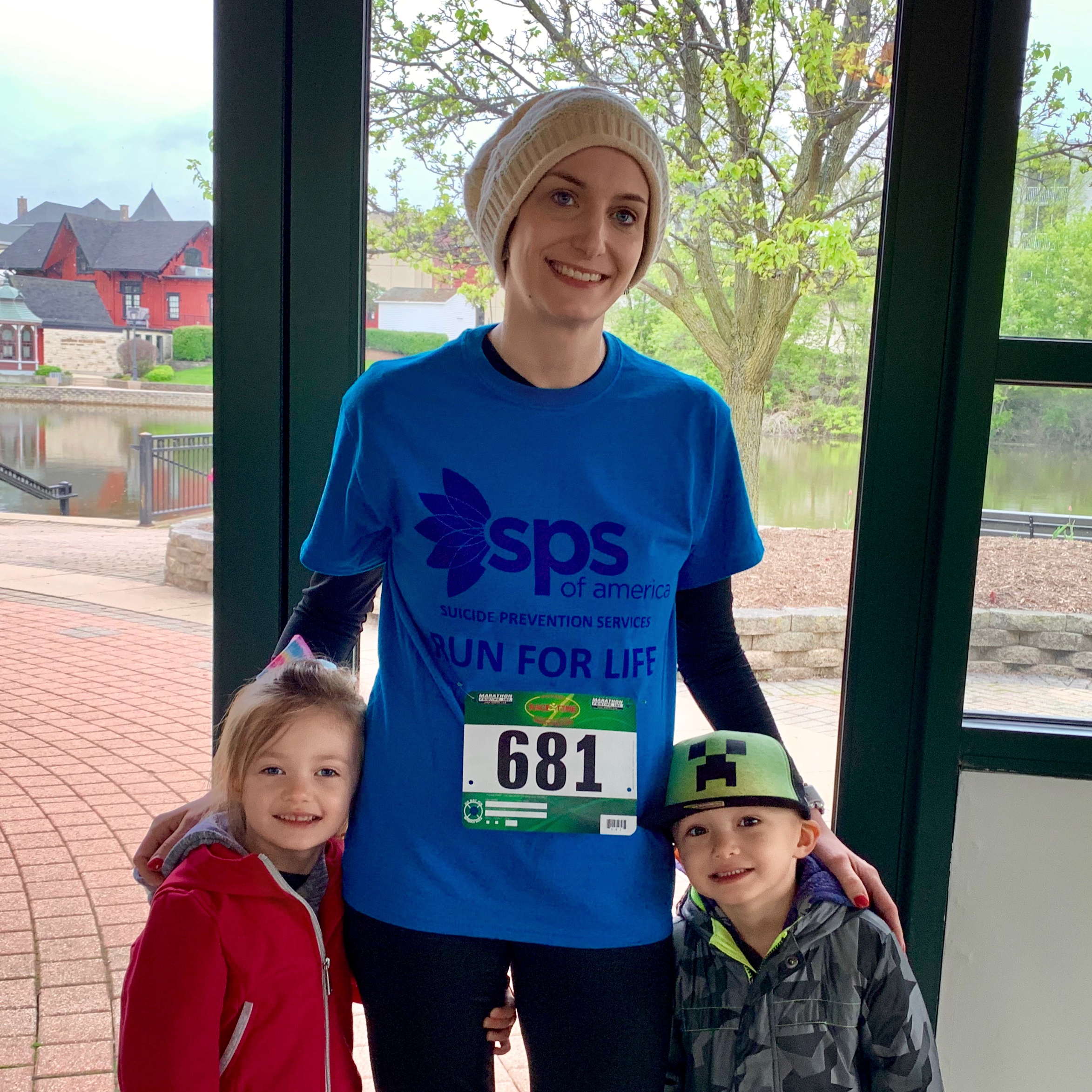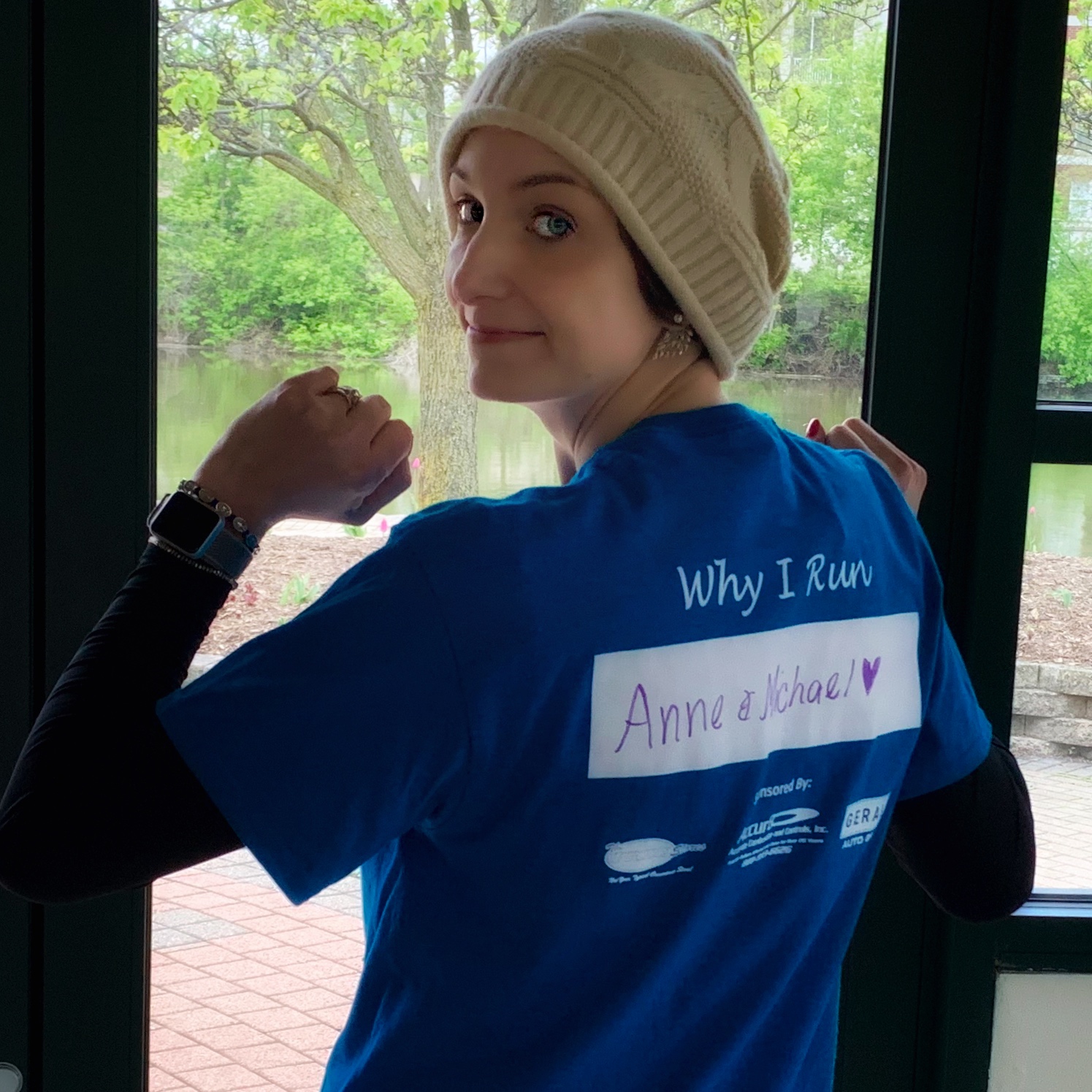While we may never know or fully comprehend the ‘why’ behind a tragedy like suicide, it’s important as survivors to change the “Whys” to “What can I do now?” by taking action and getting more involved in our local communities. The reality is 1 in 5 adults in the U.S. (46.6 million) experiences mental illness in a given year, and suicide is the 2nd leading cause of death for people age 10 to 34. I truly believe it is by raising awareness for mental health that we are able to help establish broader community support for those struggling with mental illness.
I’ve been blessed to be surrounded by incredibly strong and resilient women my whole life.
Women who continue to love openly and deeply, even though their hearts have been shattered by unimaginable loss with the untimely deaths of their children. Yet, despite their inconceivable grief and pain, they continue on, grounded in part by their unshakable faith and the love and support from their family and friends.
Grief over losing a loved one knows no timetable, especially when they pass tragically. Losing a loved one to suicide compounds this by adding another layer of confusion, shame and guilt that they missed the signs or could have done something to prevent it.
It’s for this reason that I dusted off my running shoes and ran in my first 5K this weekend—SPS Services of America’s Here for Life Run in honor of suicide prevention. While at times I walked more than I ran, no matter how small the step or slow the pace, any forward movement is progress and one step closer to becoming whole again. I’ve come to learn that whether you carry your life or your life carries you, in the end, all that matters is whether or not you are going in the right direction.
We all struggle but we don’t have to face our struggles alone.
Although the stigma surrounding mental illness often urges us to remain silent, it is only by sharing our struggles and our triumphs over our mental hurdles that we gain true resilience while helping others in the process.
Overcoming cancer and battling my own mental health struggles has taught me that we all go through periods of losing ourselves…only to find ourselves again.
I have learned that like the moon, I too must be empty and almost invisible so that I can grow to be glowing and full again.
The feeling of extreme emptiness comes in many forms.
Some call it depression. Loss. Others call it grief.
No matter what we call it—we all face similar struggles. The older we get, the more we lose; this is the law of impermanence. We lose loved ones, cherished dreams, physical strength, work, and relationships. Often, it seems like loss upon loss. All these losses bring up enormous grief that we must be prepared to embrace completely if we are to live with open hearts.
Ram Dass and other spiritual teachers often encourage us to surrender to the experience of our pain and grief.
They say that to counteract our natural tendency to turn away from pain, we must open to it as fully as possible and allow our hearts to break. We must take enough time to remember our losses –friends or loved ones who pass away, the death of long-held hopes or dreams, the loss of homes, careers, or health we may never get back again. Rather than close ourselves to grief, it helps to realize that we only grieve for what we love.
Grief passes in time— yet the time it takes varies by person.
It is often said that the grief process is more like a spiral, bringing us to a place of release, decreasing for a time, then continuing on a deeper level. Many times when we are grieving, we think that it’s over, only to find ourselves swept away by another wave of intense feeling. Over time we soon realize that these deep feelings don’t disappear completely; the pain of their loss merely transforms us. Ultimately, we soon realize love is stronger than death, and our loved ones are indeed still with us—just in a different form.
Life is full of peaks and valleys; unfortunate twists and turns. Highs and lows. Death and rebirth.
Time and time again we are forced to make difficult decisions and say goodbye to those we love. We are repeatedly broken apart, over and over, and through the cracks we catch glimpses of the mysteries of living and dying.
The cycles of nature remind us that nothing is permanent, and although we may be in the midst of a difficult season right now, relief will soon be here; if we just hang on a little longer.
While the things we carry may define us, we are equally capable of defining them. Whether we are currently weighed down with depression, anxiety, loss or illness; ultimately the first step to relieving our burden is opening up to it.
It is only by opening up to these emotions and fully feeling them, that we are able to move past them. I’ve found by opening myself up and sharing my story; my struggles with depression, anxiety, suicide and loss, it helps ease the burdens of others and lightens the weight on my shoulders too.






